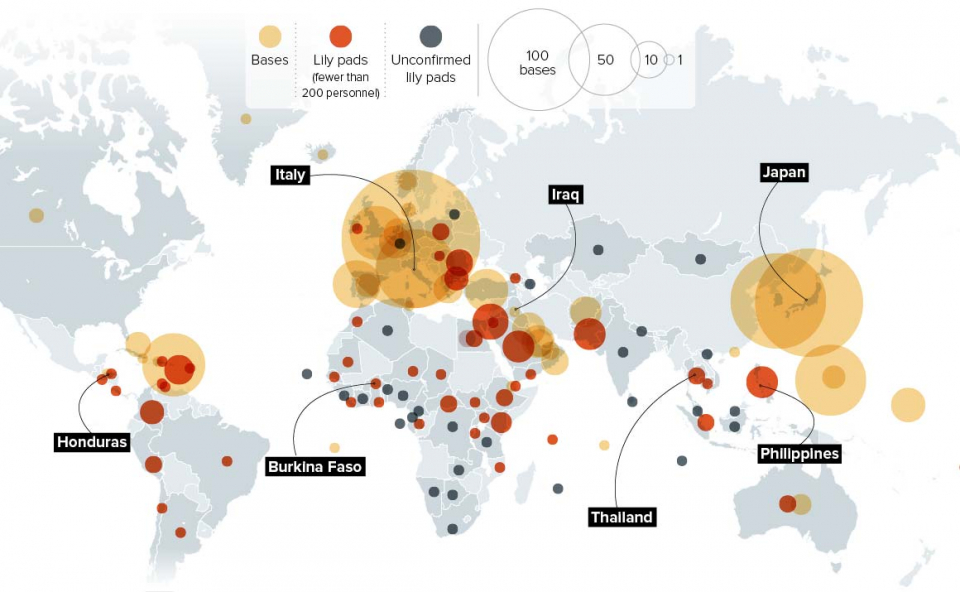The United States' extensive network of approximately 800 military bases outside its borders often goes unnoticed by policymakers, despite its significant costs and associated disadvantages. With around 80,000 American troops stationed in Europe and over 150,000 in Asia, the presence does not directly shield the U.S. from enemy attacks. This global military presence seems to position the United States as a kind of global police force, prompting questions about its effectiveness and its impact on reducing world violence.
Critics argue that the success of this approach is questionable, raising concerns about whether the widespread military presence has achieved its intended goals of maintaining global stability and reducing violence. The geopolitical landscape is complex, and some argue that the U.S. military presence may contribute to tensions in certain regions rather than fostering peace. Evaluating the overall impact requires a nuanced consideration of various geopolitical factors and conflicts.
Debates surrounding the effectiveness and consequences of the U.S. military's global presence underscore the ongoing need for policymakers to assess the strategy's outcomes, considering the evolving nature of international relations and the geopolitical challenges of the 21st century.

















